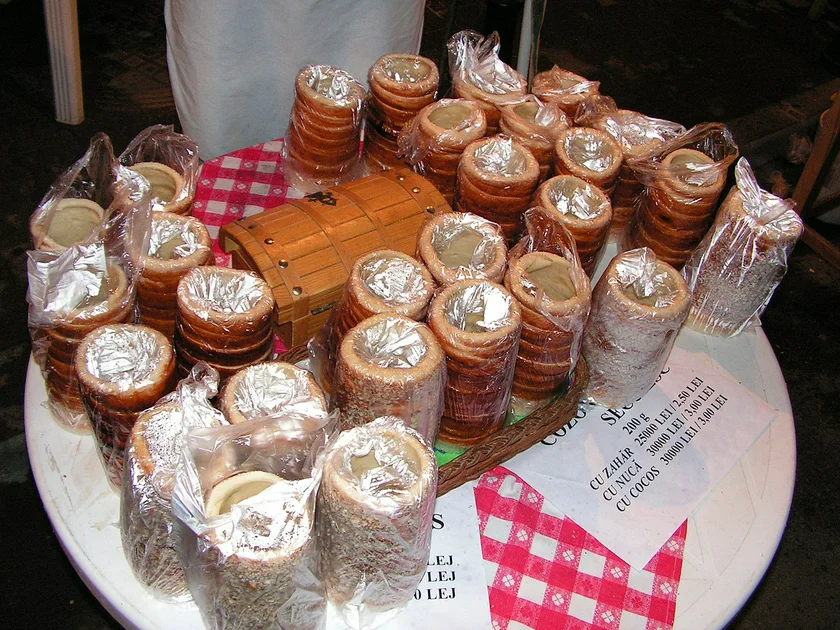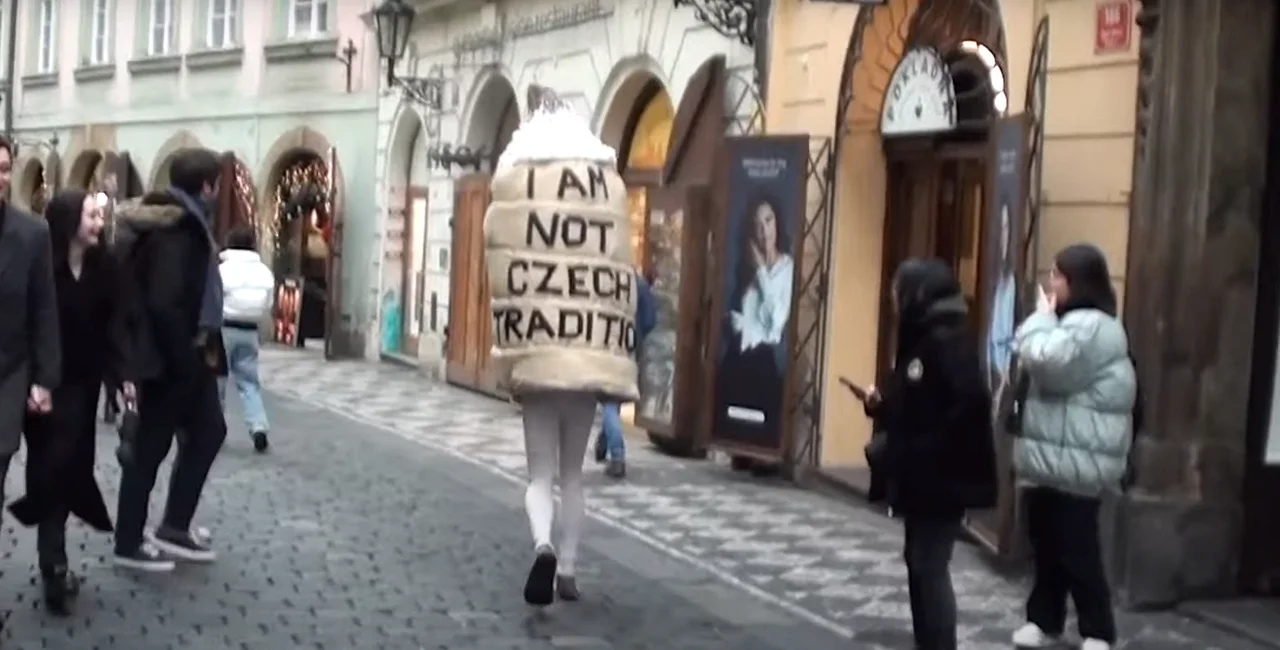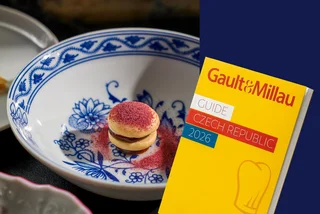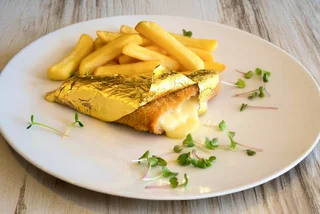A video of an individual skipping around Prague's most tourist-concentrated areas in a trdelník costume bearing the words "I am not Czech tradition" has led to much debate on social media about the true origins of the tubular funnel cake.
The video was posted to the YouTube account I AM NOT CZECH TRADITION four days ago but appears to be shot while the Christmas markets were taking place. It features the trdelník mascot making the rounds of tourist hotspots, wandering by vendors and people eating the cinnamon-dusted confection, all the while stopping to pose for photos.
Highlights from the video include an interaction with a homeless man sitting on Karlova street who shouts, "It's true, it's true!" and an enthusiastic Old Town street vendor who rushes to take a photo with the anti-trdlo and says, "I've been making trdelník for 20 years...it makes a lot of money but I'm sick of it...people eat it and nothing else."
The video also hints at the problem of tourist blight in Prague: At one point the camera lingers on a binned trdelník as well as a shot of pigeons pecking at a discarded trdelník rind. After crossing Charles Bridge, past a grinning woman in the full throes of trdelník pleasure, the mascot is smacked by a child while taking a break in a Malá Strana.
Janek Rubeš and Honza Mikulík's Honest Guide profile shared photos of the unsung hero of Czech pastry purity Tuesday on their Facebook page. The post has already garnered 6K+ likes and hundreds of bemused comments.
Most of the comments relate to the actual origin of the treat, which, in recent years, can be found filled with whipped cream, ice cream, and Nutella. A hot dog version had people pointing out its resemblance to the pigs in a blanket in the U.S. despite the difference in size.
"Trdelnik is registered as Slovak traditional cake not Czech not Hungarian not Romanian. Anyway bon appetite [sic]!" wrote one Honest Guide fan.
Other comments referred to the poor quality and high price point of trdelník, while fans of the controversial street food defended it as a Prague must.
"I know it’s a tourist food, but I still wanted to try, and loved it, especially with the soft serve and brownies in it," said another Facebook user.
If not Czech, then where is trdelník from?
Further east, trdelník has been a popular sweet treat for centuries, under the Hungarian name Kürtőskalács. Its first mention was in a 1784 cookbook written by countess Maria Mikes from Zabala, a village in the Székely Land, a Hungarian-speaking region in Transylvania, nowadays part of Romania, according to Romanian daily Libertatea.
In Hungarian, the name Kürtőskalács means cake shaped like a stovepipe. The Hungarian cakes are larger than the Czechs trdelník and traditional recipes are always sweet, without fillings, just sprinkles of sugar and ground hazelnuts. Mini-Kürtőskalács, which are more or less thumb-sized and filled with cream cheese or vanilla cream, have also been popular in Transylvania before making their way to Czech food stands.
As National Geographic notes, the dessert has been celebrated as the oldest pastry in Hungary, where they are also popular as street food, as they are in Romania.

While the identity of the human trdelník has yet to be officially confirmed, one commenter on the Honest Guide post pointed out that his footwear of choice gives the mascot away ("Said the guy with socks and sandals…").
The YouTube account linked with the video identifies the pranksters as DAMU students Anna Hubená and Danny Takieddin. Could this be the start of a homegrown movement against the mistaken Czech identity of Kürtőskalács?












 Reading time: 3 minutes
Reading time: 3 minutes 





























